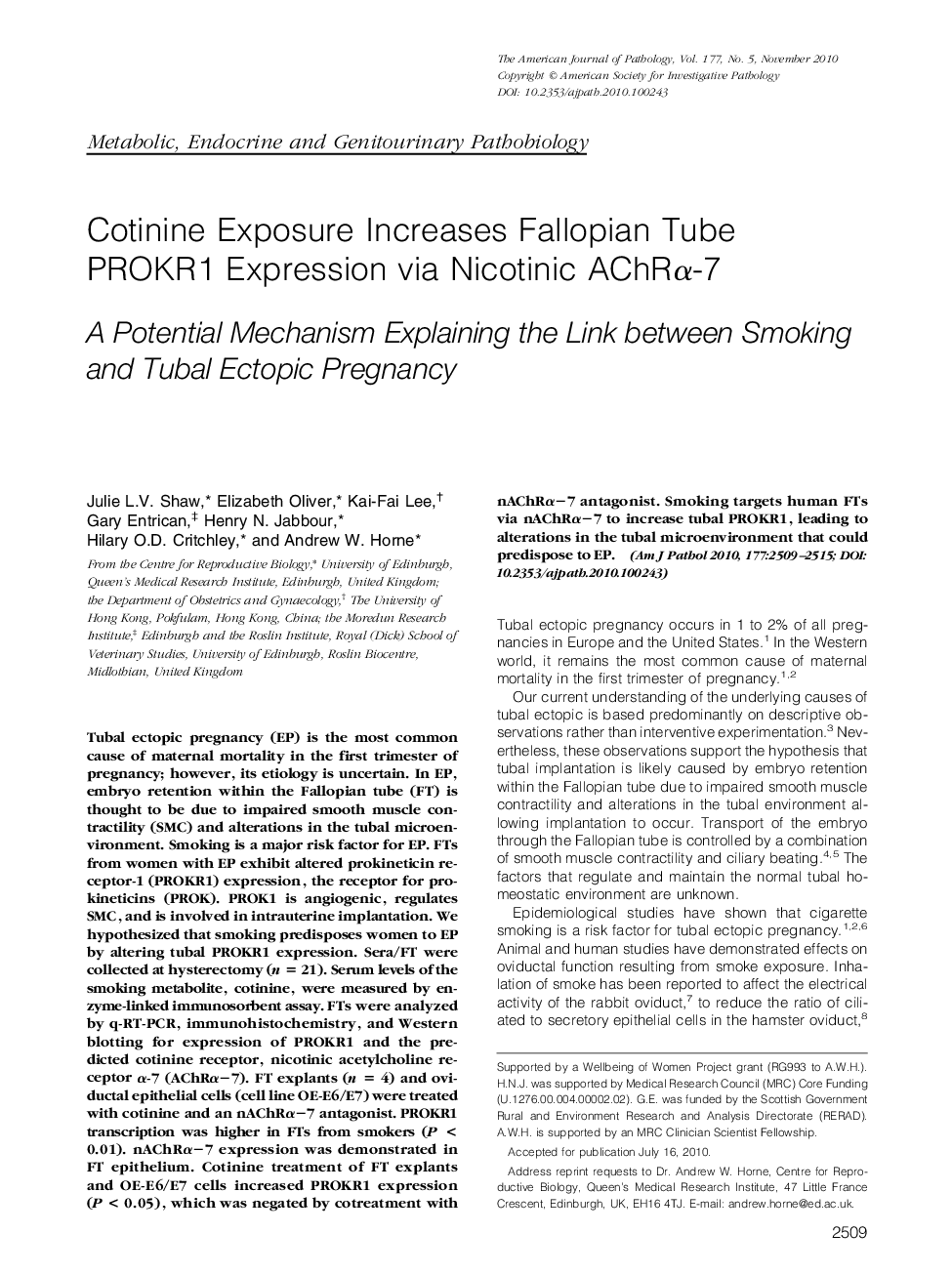| Article ID | Journal | Published Year | Pages | File Type |
|---|---|---|---|---|
| 5935522 | The American Journal of Pathology | 2010 | 7 Pages |
Abstract
Tubal ectopic pregnancy (EP) is the most common cause of maternal mortality in the first trimester of pregnancy; however, its etiology is uncertain. In EP, embryo retention within the Fallopian tube (FT) is thought to be due to impaired smooth muscle contractility (SMC) and alterations in the tubal microenvironment. Smoking is a major risk factor for EP. FTs from women with EP exhibit altered prokineticin receptor-1 (PROKR1) expression, the receptor for prokineticins (PROK). PROK1 is angiogenic, regulates SMC, and is involved in intrauterine implantation. We hypothesized that smoking predisposes women to EP by altering tubal PROKR1 expression. Sera/FT were collected at hysterectomy (n = 21). Serum levels of the smoking metabolite, cotinine, were measured by enzyme-linked immunosorbent assay. FTs were analyzed by q-RT-PCR, immunohistochemistry, and Western blotting for expression of PROKR1 and the predicted cotinine receptor, nicotinic acetylcholine receptor α-7 (AChRαâ7). FT explants (n = 4) and oviductal epithelial cells (cell line OE-E6/E7) were treated with cotinine and an nAChRαâ7 antagonist. PROKR1 transcription was higher in FTs from smokers (P < 0.01). nAChRαâ7 expression was demonstrated in FT epithelium. Cotinine treatment of FT explants and OE-E6/E7 cells increased PROKR1 expression (P < 0.05), which was negated by cotreatment with nAChRαâ7 antagonist. Smoking targets human FTs via nAChRαâ7 to increase tubal PROKR1, leading to alterations in the tubal microenvironment that could predispose to EP.
Related Topics
Health Sciences
Medicine and Dentistry
Cardiology and Cardiovascular Medicine
Authors
Julie L.V. Shaw, Elizabeth Oliver, Kai-Fai Lee, Gary Entrican, Henry N. Jabbour, Hilary O.D. Critchley, Andrew W. Horne,
